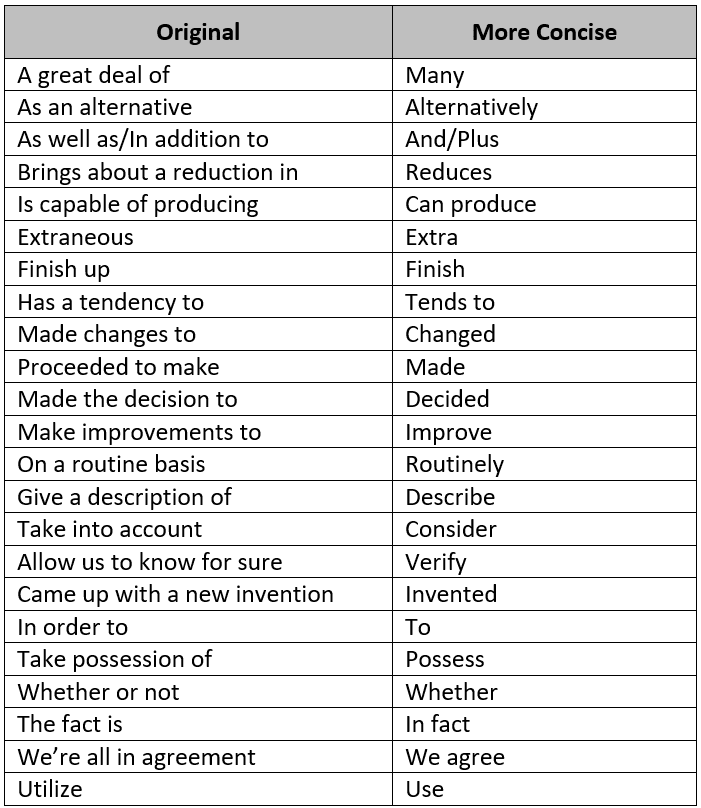Beware of Sesquipedality—A Common Cause of Wordiness

If you’re an experienced professional, you probably don’t think your writing is wordy—especially if it’s direct and omits irrelevant details. But even straightforward writing can put readers to sleep if it includes too many polysyllabic words (we see you yawning). In a nutshell, keep it short, and don’t fall victim to sesquipedality!
What in the World is Sesquipedality?
Sesquipedality is the use of overly long words. The term derives from the Latin sesquipedalis, meaning “one-and-a-half-feet.” A related word is sesquicentennial, which is a 150th anniversary (literally: one-and-a-half centuries). People who suffer from sesquipedality often add five-dollar words to their writing in an effort to sound smart or highly educated. But even one sesquipedalian word can make a sentence unnecessarily lengthy (i.e., too long).
As technical writers, you’d think we would take every opportunity to use impressive-sounding words in our documents. It’s quite the opposite! Our goal as communicators is to present information as clearly and concisely as possible. We navigate specialized source material full of scientific jargon and translate it into plain language that can be easily understood. By removing useless words and replacing long ones with short ones, we provide the audience with a complete understanding of the content.
In technical writing, every word counts. If it doesn’t inform, it doesn’t belong. Delete it!

Pulling Out Word Weeds
To cure yourself of sesquipedality, you need to cut through the weeds, pulling out extra words that clutter the page and muddy the message.
Let’s put this into practice. Consider this sentence:
It is estimated that it took five thousand dollars above budget to finalize the project work.
Sounds professional, right? It reads like something you’d find at the end of a business report. Only, it’s not as clear as it could be. The project is complete, so why is the team estimating its cost, rather than giving a precise amount? If it took an additional five thousand dollars to finish the project, the team wasn’t above budget—they went over budget. And all this to say they’ve “finalized project work.” Does that mean they finished the project, or they finished planning the work required?
We can pull some weeds out of this sentence. Here’s the main point: the project cost more than expected. Instead of hiding behind flowery language and pointless sesquipedality, get straight to the point. Consider these alternatives:
- Upon completion, project costs exceeded the budget by five thousand dollars.
- To complete the project, we spent $5,000 more than our budget allowed.
- The project went $5,000 over budget.
Each sentence conveys the same basic message as the original, and each one is more succinct than the last. The final sentence is written in the active voice, so readers will get the message right away without stumbling over business jargon or unnecessary wordiness.
You might ask, “What’s wrong with being wordy if I sound professional?” You raise a good point! In business and technical writing, professionalism is paramount. You wouldn’t show up 20 minutes late to a meeting with an important client; they’ve taken time out of their day to meet with you, and wasting that time would be unprofessional. Follow that same logic with your writing. Keep it brief, keep it clear, and respect your readers. At ProWrite, we always say it’s better to be professional in your writing than to simply sound professional. Accurate and clear communication can speak for itself without fancy words. Why say “utilize” when “use” will do?
When you force your readers to parse the meaning of wordy sentences, you aren’t respecting their time. It’s hard to retain information when the text is a slog to get through. As a technical writer, isn’t it your goal to present information as clearly and concisely as possible? (It should be!) Be a person of few but important words. People will become more attentive when you talk. You’ll demonstrate that you value and respect your audience’s time and intelligence. Furthermore, your example will show others how they can be straightforward and succinct themselves, thereby generating clear communication all around.
How Do You Recognize and Eliminate Wordy Phrases?
Shout It Out
Imagine you must communicate your message by yelling it across an open field. The wind is howling, your colleague is a dot on the horizon, your phone is dead, and you need to get the point across quickly. Which of these sentences are you more likely to shout?
“Forty individuals have arrived on the premises!”
Or
“Forty people are here!”
ProWrite staff don’t often yell in empty fields, but we would pick the latter. It’s short, it’s clear, and you wouldn’t have to pause to take a second breath halfway through. If you ever wonder whether a sentence could be more succinct, find a field (real or imaginary), shout it out, and see how it sounds.
Read Your Writing Aloud
Not to be confused with the shout test, this method of cleaning up your writing is just as effective (and quieter). Whether you read to yourself, a colleague, or even a pet, by speaking the words aloud, you’ll hear how they sound conversationally. This will help you pinpoint problem areas and wordy terms. When you come across unnecessary words, you’ll rush through them—even to the point of mumbling—to get to the more important and engaging content. That’s because your subconscious mind already recognizes filler and doesn’t want to waste time with it or risk losing your listener’s attention. When you read your work aloud and listen to how it sounds, you’ll find it easier to clean.
Be on the Lookout for the Usual Suspects
Most of us have gotten so used to hearing certain wordy phrases that we use them without thinking—or insert them intentionally because our emails and presentations don’t sound right without them. These phrases, like other clichés, are easy to spot once you know to watch out for them. But, to ensure you notice them, we’ve put together a short list of common culprits and more concise alternatives. When you’re proofreading, focus on finding and revising these and other overused phrases.

Ask an Expert
Every writer needs an editor, and every student needs a teacher. For you, ProWrite can be both. If your writing needs a second set of eyes, our team of editors and proofreaders will clean it up and cut any sesquipedalian terms. Our top-tier writers and designers will work with you to create the documentation you need to succeed. Not only that, but we can train you and your staff to keep your business communications brief, clear, and professional. Contact us today!
Do you see any words or phrases in this blog that you can make more concise? Please add them to the Comments on our LinkedIn post.
Posted in Blog
